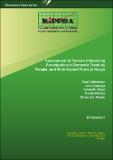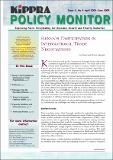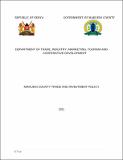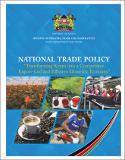| dc.description.abstract | This paper sought to assess how firm-specific factors—size, regulatory factors— tax obligation, licensing requirements, and registration requirements, support factors—access to credit, piped water, electricity, mobile money platforms, Internet, on-job-training, road status, trade associations, and nature of trading premises, owner-specific factors—gender, and education attainment, and geographical factors—county economic blocs, influence domestic-trade participation by female-and male-owned firms in Kenya as an avenue for accelerated income generation, job creation, poverty alleviation, and economic growth and development as enshrined in the "Big Four" Agenda and the Kenya Vision 2030. Cross-sectional data obtained from the 2016 MSMEs Survey was used to undertake empirical analysis. Domestic trade participation was measured as a categorical variable identifying the main buyer of goods and services—MSMEs, non-MSMEs, government, and individual consumers. Estimation was done using multinomial logit. Gender, level of education attainment, tax obligation, licensing regulations, registration requirements, access to credit, access to mobile money platforms, nature of trading structure, on-job-training, membership to trade associations, status of roads, access to Internet and electricity, firm size, and regional county economic blocs were found to have statistically significant effect on various outcome categories of domestic trade participation | en |




